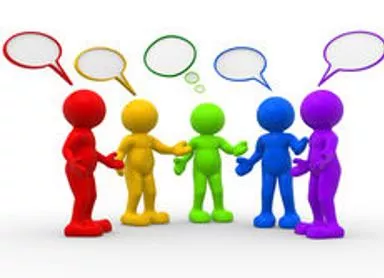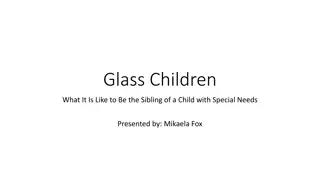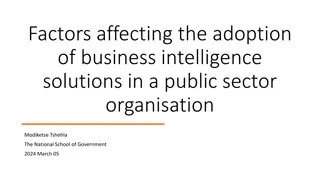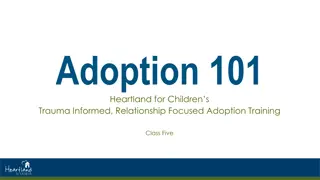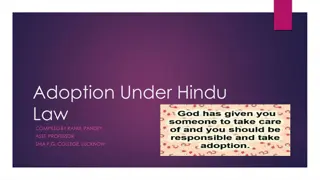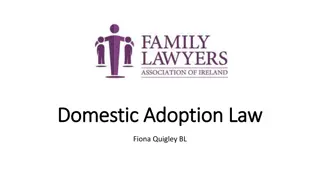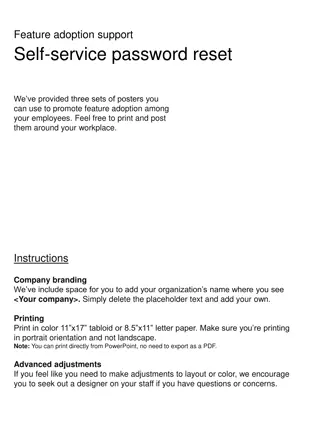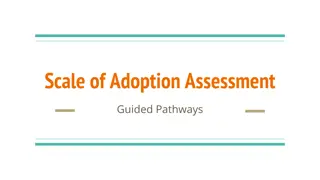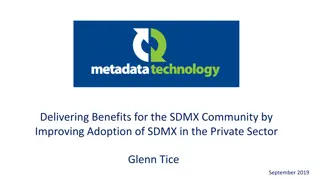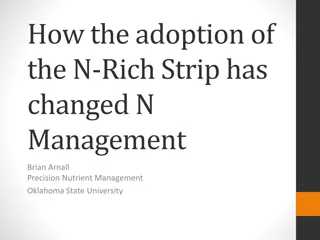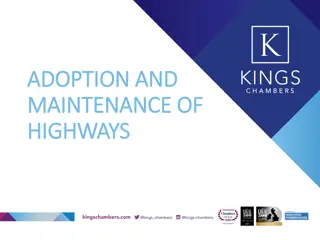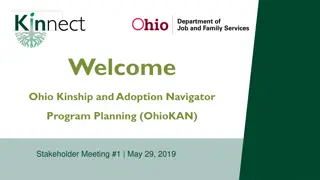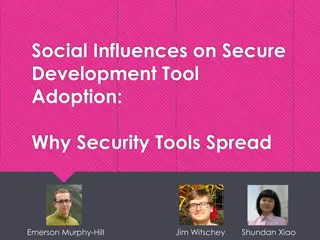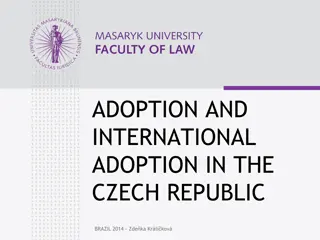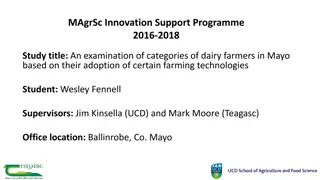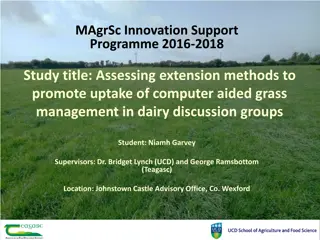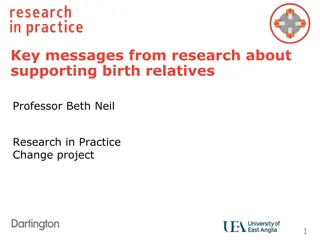The Importance of Sibling Groups in Adoption
Explore the considerations when adopting a sibling group, including their individual and collective needs, practicalities of parenting, and the children's adoption journey. Delve into the benefits of keeping siblings together and the challenges and rewards of parenting a sibling group.
Download Presentation

Please find below an Image/Link to download the presentation.
The content on the website is provided AS IS for your information and personal use only. It may not be sold, licensed, or shared on other websites without obtaining consent from the author.If you encounter any issues during the download, it is possible that the publisher has removed the file from their server.
You are allowed to download the files provided on this website for personal or commercial use, subject to the condition that they are used lawfully. All files are the property of their respective owners.
The content on the website is provided AS IS for your information and personal use only. It may not be sold, licensed, or shared on other websites without obtaining consent from the author.
E N D
Presentation Transcript
Thinking about Sibling Groups
Thinking about Sibling Groups Workshop Aims This Workshop will help you to: Think about adopting a sibling group, how many, age, and gender. Think about the individual and collective needs of sibling groups. Think about the practicalities and impact of parenting a sibling group. Consider what you have to offer to a sibling group Consider the children s journey to adoption and issues around telling and contact
Thinking about Sibling Groups Programme: Setting the scene Thinking about the needs of sibling groups Am I Realistic, Resourceful and Resilient? Thinking about yourselves as parents and the positives and the challenges of parenting a sibling group. Experienced Adopters Video Clips Live Q&A with Experienced Adopter
Thinking about Sibling Groups Working Together Confidentiality Respect for difference Challenge Space to speak Safety which encourages learning
Introductions Who are we and where are we in our adoption journey?
Thinking about Sibling Groups: Setting the Scene Sibling groups wait the longest to be placed for adoption. Half of the children waiting for adoption need to be placed with their brothers and sisters There is a shortage of adopters who can offer siblings a family The Adoption service has a statutory duty to consider whether siblings should be placed together ensure, if right, that siblings can live in the same family
Thinking about Sibling Groups: Setting the Scene Benefits of being in a sibling group: Relationships between brothers and sisters are often the longest lasting relationship they will have. Being placed with a brother or sister can help a child settle into a new family and have a positive sense of who they are. Placing siblings together enables them to have a shared sense of their birth history.
Thinking about the individual needs within sibling groups Sibling group dynamics different experiences within birth family, i.e scapegoated, taken on caring responsibilities, used to protect or take on punishments for other siblings. Siblings experience and recall the same events differently - can be traumatised (or not) in different ways. Older siblings may overshare traumatic experiences with younger children - Older children may have stronger connections to birth parents than younger siblings. Each sibling needs an understanding of their own story. One sibling might need more ongoing professional support than others can create a sense of less equal parenting Siblings with attachment needs may seek attention in unhealthy ways - favouring one parent over the other, or sibling rivalry to seek the most proximity to you as a parent. Impact on you to give equal attention to each child.
Thinking about Sibling Groups: What qualities do I need to adopt a sibling group? Assessment of families who would like to adopt a sibling group highlight the importance of the following qualities: Being REALISTIC Being RESOURCEFUL Being RESILIENT
Are you Realistic, Resourceful and Resilient? Have you thought about the emotional and practical considerations? e.g. finances, space in your home, car size, the reality of living with siblings, noise, chaos, busy lifestyle, do you have enough headspace? What qualities do you feel you have which mean that you could parent siblings? What about your own sibling relationships? How does this shape your thinking? What are the views of your family and friends and their willingness to support you? Are you united in your thinking about adopting siblings? How will you meet the individual needs of each child as well as the collective group? How will you support siblings with the telling process? Do you intend to go back to work. Are you prepared to accept that you may not be able to further your career? Are you committed in the longer term having one of you at home for large majority of the time to offer stability?
Discussion Time Feedback from your thoughts about being Realistic Resourceful Resilient
Experienced adopters speak about their early discussions and thinking
Your Support Network What support do they need from you? Let your family members know about the Friends and Family Training Workshops Building a support network Monkey Minds Talk to your family about what you would like their support to look like. Find out if they can offer the type of support you need? How will you support your support network to stay involved into the longer term future? Include them in training opportunities. Help them to understand your child as they grow and develop, emotionally and physically. Include them in life story discussion if appropriate Make sure that you feel happy and confident to ask for help when you need it. Your support network WANT to help you.
Experienced adopters speak about matching and moving in
Discussion Time Matching and Moving in
Experienced Adopters Speak Life as a large family
Discussion Time Life as a large family and the challenges!
Resilience Thinking about your emotional capacity as parents . The concept of the Window of Tolerance Information courtesy of Beacon House Therapeutic Services & Trauma Team | 2019 | www.beaconhouse.org.uk
What might your Window of Tolerance look like as a parent to adopted siblings? Information courtesy of Beacon House Therapeutic Services & Trauma Team | 2019 | www.beaconhouse.org.uk
Experienced Adopters Speak Looking to the future
Discussion Time Your future as adoptive parents of a sibling group?
Resource yourself Subscribe to the National Association of Therapeutic Parents (NATP). You will be able to access lots of support such as training, and support groups. Subscribe to Adoption UK where you will find a variety of resources. There is also access to a buddy scheme where experienced adopters support new adopters. Ask your social worker to link you with other experienced adopters in AEM who have had siblings placed. Ask your social worker to refer you to the Virtual Reality training. This is a training course designed to enable you to have a deeper understanding of the experiences of traumatised children and the impact on brain development.
I read a book that explained why and when kids move from 100% emotional responses to logical responses (I think it was called the Chimp Paradox?) so once I understood that my kids were emotionally responding (I want that ice- cream now) instead of if you tidy your room you can have an ice-cream it got a little easier But in all honesty if anyone would like to know what adopting siblings is like, get them to watch Instant Family we laughed our socks off as a family. (Bi) Books and Resources We found it more useful to talk to other adoptive parents we were linked with another couple during the assessment process who we visited, and this was really helpful. We read a lot of books, but nothing was as useful for us, as talking to other adoptive parents. The most useful ones were books about attachment and we read a book about sibling rivalry, which was helpful too. (LA)
Book List Saunders, H. and Selwyn, J. (2011) Adopting large sibling groups: The experiences of adopters and adoption agencies. Heather Claire Ottaway: Sibling Connections: An Exploration of Adopted People s Birth and Adoptive Sibling Relationships Across the Life- Span (2012) Siblings in Foster Care and Adoption: Traumatic Separations and Honoured Connections (2008) Edited by Deborah Silverstein and Susan Livingston Smith Therapeutic Parenting Essentials: Moving from Trauma to Trust (2019 by Sarah Naish, Sarah Dillon and Jane Mitchell.
Thinking about Adopting Sibling Groups Any Questions?
Live Q&A with Experienced Adopters Opportunity to ask questions to an adoptive parent who is parenting a sibling group








